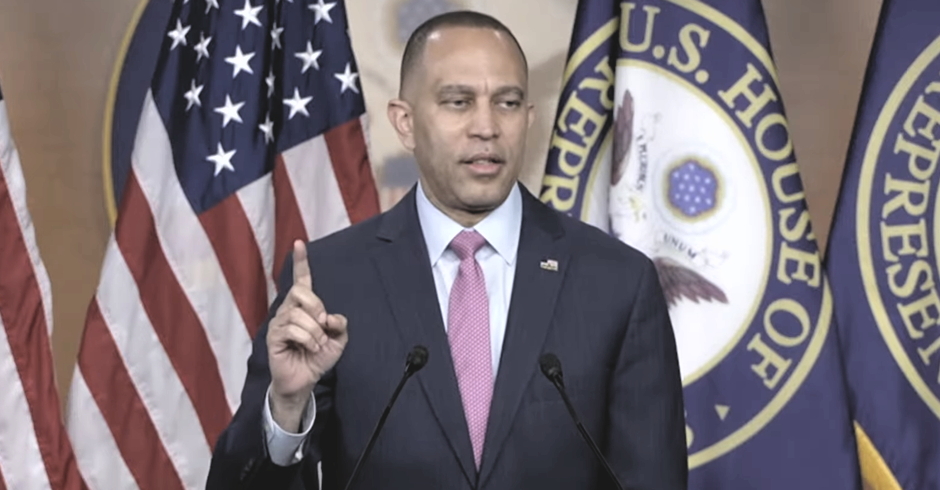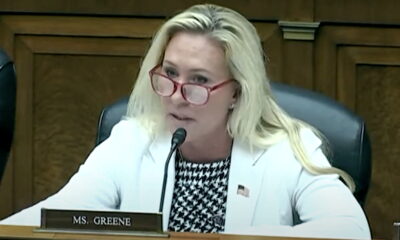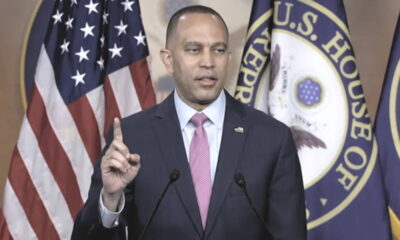Pride
Our Nation’s Fine Heritage Of Protest Politics
Editor’s note: I am honored to share with you William B. Turner’s latest contribution to The New Civil Rights Movement. Dr. Turner is an author and editor known for his work on “Creating Change: Sexuality, Public Policyâ€, among other books, and a regular contributor to the Daily Kos. He writes occasionally here as well.
LGBT Pride events celebrate the anniversary of the Stonewall Riots, which occurred in June 1969 at the Stonewall Inn in Greenwich Village, New York City. In the Stonewall Riots, a group of queers, including a lot of transgender persons and street persons, fought back against an otherwise routine police raid on the Stonewall Inn, a queer bar.
Note two things: “routine police raid†and “fought back.â€Â Until Stonewall, and in many places for sometime afterward, police would routinely raid bars just to keep the queers in line. If a person got arrested during one of these raids, the fact of the arrest would likely appear in the local newspaper, potentially ruining the man’s (people whom this happened to were usually men) career and family life. Some states had statutes prohibiting serving alcohol to known “homosexuals.â€Â But statute or no, the police would conduct raids and arrest the patrons of the bar on whatever charges they could trump up. A friend here in Oklahoma City reports that he arrived one evening at his favorite bar and kissed every man at the bar on the back of the neck as he walked by. The police arrested him for public lewdness, but he demanded a trial. The judge threw the case out, asserting that the conduct in question was not illegal.
Which brings us to the second point: “fought back.â€Â When I say queers fought back in the Stonewall Riots, I mean literally fought with the police, even pulling a parking meter out of the pavement and using it to blockade the police inside the bar. Not bad for a bunch of nelly queens.
It is important to appreciate that this was a serious riot. In rioting against injustice, the queers at Stonewall participated in the finest tradition of American protest politics. They are the queer equivalent of George Washington and Thomas Jefferson. The United States was founded as a nation on a riot – the Boston Tea Party — that grew into a war against the most powerful military in the world at the time. We should be proud of the queer contribution to the fine history of protest politics in the United States, which includes various forms of protest against slavery, on behalf of voting rights for women, against the oppressive power of larger corporations, and against segregation and the Vietnam War.
We should also be prepared to engage in such protest again if the need arises. Thanks to the political movement that emerged after the Stonewall Riots, no jurisdiction in the United States still allows, or requires, its police to conduct routine raids on gay bars. We have made our own lives safer, better, and more nearly equal with our protests. Our protests these days are more likely to take the form of law suits than street protests, but we should not take for granted the resources and respectability that allow us to use the courts rather than the streets to win our point.
The last great queer riot in the United States occurred on May 21, 1979. The “White Night Riot†occurred as a response to the conviction of former San Francisco Supervisor Dan White, who had assassinated openly gay Supervisor Harvey Milk and Mayor George Moscone the previous November. The jury chose not to find him guilty of first-degree murder despite the fact that White had climbed in a window at City Hall to avoid the metal detectors and was carrying extra ammunition despite no longer being a police officer. His attorney claimed he suffered from diminished capacity as indicated by the usually very health-conscious White’s increased consumption of junk food, which detractors came to call the “twinkie defense.†Rioters started a fire at City Hall after breaking through the glass in the front doors, and set police cars on fire, eventually causing over one million dollars in damages. Later that night police officers randomly attacked patrons at a gay bar. In all, 61 police officers and 100 queers required medical attention as a result of the White Night Riot.
Queers are often more creative protestors, having created two of the greatest protest organizations in the nation’s history: AIDS Coalition to Unleash Power (ACT-UP) and Queer Nation. ACT-UP pulled off one of the greatest protests in the history of the United States when they shut down the Food and Drug Administration in Washington, D.C., thus forcing the FDA to make experimental drugs available to persons with AIDS before final approval. ACT-UP also originated a totally new form of protest, the die-in, in which protestors would fall to the ground as if dying and, while still on the ground, shout statistics about AIDS deaths. ACT-UP members also produced some highly effective and highly artful protest posters.
Queer Nation picked up on ACT-UP’s penchant for direct-action protests, expanding them to include all LGBT issues, not just AIDS. Queer Nationals conducted subtle visibility actions, going shopping in malls with clothing and buttons that indicated their LGBT identity. They adapted the die-in as the kiss-in, in which large numbers of same-sex couples would kiss each other in public places. Queer Nation also produced some highly effective and memorable protest art.
In sum, “Pride†is the best term for the attitude all queers in the United States should take toward our collective participation in our Nation’s fine heritage of protest politics.
William B. Turner is a student of the history of the LGBT Civil Rights Movement. He holds a Ph.D. in history from Vanderbilt University and a J.D. from the University of Wisconsin. He has written on the statutory exclusion of lesbian/gay aliens from the United States from 1917 to 1990, Wisconsin’s pioneering legislation prohibiting sexual-orientation discrimination, and on lesbian/gay rights issues in the Carter and Reagan presidential administrations in Creating Change: Sexuality, Public Policy, which he co-edited with John D’Emilio and Urvashi Vaid. He edited the section on the LGBT movement for The Encyclopedia of American Social Movements and wrote the entries on the Defense of Marriage Act, sexuality, and sexual orientation for The Dictionary of American History. He posts regularly on the Daily Kos web site. He has also published A Genealogy of Queer Theory, as well as various other articles in law reviews on LGBT civil rights and African American civil rights.

Enjoy this piece?
… then let us make a small request. The New Civil Rights Movement depends on readers like you to meet our ongoing expenses and continue producing quality progressive journalism. Three Silicon Valley giants consume 70 percent of all online advertising dollars, so we need your help to continue doing what we do.
NCRM is independent. You won’t find mainstream media bias here. From unflinching coverage of religious extremism, to spotlighting efforts to roll back our rights, NCRM continues to speak truth to power. America needs independent voices like NCRM to be sure no one is forgotten.
Every reader contribution, whatever the amount, makes a tremendous difference. Help ensure NCRM remains independent long into the future. Support progressive journalism with a one-time contribution to NCRM, or click here to become a subscriber. Thank you. Click here to donate by check.
 |


















